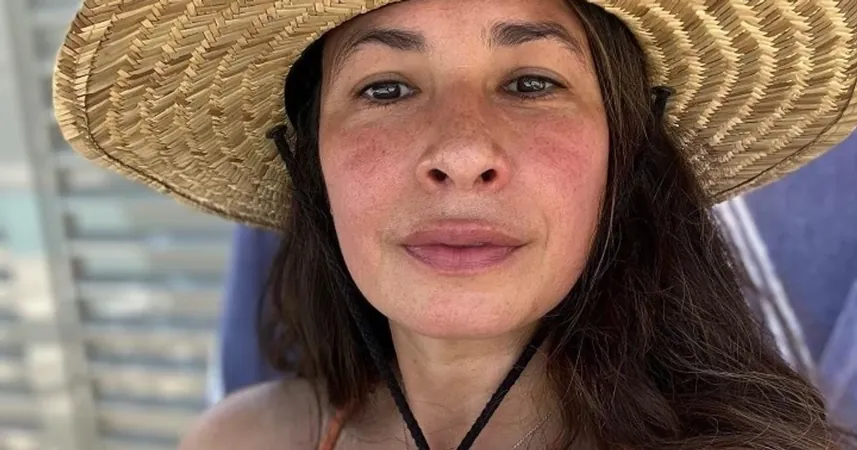
From Abiding by Family Expectations to Transforming Grief - A Journey of Motherhood and Self-Discovery
2024-10-14
Author: Wai
I was savoring my morning coffee, its burnt flavor lingering on my taste buds, when my uncle unexpectedly joined my sister and me in the diner booth. The surprise of his presence brought a mix of emotions, but I felt a wave of relief dissolve my initial annoyance.
“Hola, tío! We didn't expect to see you,” I said with a quick kiss on his cheek. Our weekend family visit from New York City to New Jersey was something of a tradition, and my father was especially proud of my new finance job, which I had landed thanks to a competitive college internship.
As we settled in, my uncle didn't waste time. “When are you going to have a baby? You’re getting old; your eggs will be old. You don’t want that.” Those words shattered my appetite, replacing my craving for an omelet with a heavy sense of dread.
I felt compelled to remind him, “I don’t even have a boyfriend, I’m not married, and I’m only 25.” Luckily, my father chimed in, “She is focused on her career—let her be.”
Growing up in a strict household as a middle child, I was well-versed in the rules laid out by my family. From not being allowed to date to always presenting a feminine, agreeable demeanor, there were unyielding expectations that I had to navigate. The ultimate taboo, however, was being a statistic—teen pregnancy was a burden of shame in our culture.
My childhood felt like a tightrope walk; I didn’t want to be rebellious, yet I couldn’t conform entirely. The silence surrounding tough topics, particularly those related to womanhood, motherhood, and expectations, was deafening. As a Latine woman, I was acutely aware of the cultural pressures regarding motherhood and family roles imposed on women.
Years later, at 32, I thought I had finally found a path that blended family and personal dreams when I met my husband in Mexico and we married. We wanted children. My clock was ticking, and we were ready. When I became pregnant, I was elated. But joy turned to despair during a 20-week scan when we discovered that my placenta was failing, and our baby had no chance of survival. The unimaginable happened when I birthed my stillborn daughter, Paloma, flooding my world with pain I never anticipated.
Returning home, I felt shattered. My father tried to comfort me in his own way, silently fixing things around the house. “Mija, lo siento,” he said; “Sometimes in life, you need to have humility.” But the very essence of his help felt inadequate against the overwhelming guilt and responsibility I carried. I felt that I had let everyone down.
Between the trauma of losing my daughter and experiencing the stigma surrounding motherhood, I was plunged into deep grief and isolation. Discussions on pregnancy loss were scarce, especially in my community, which idealized motherhood. I felt like a pariah, as rumors suggested I waited too long to have children, leaving me to grapple with feelings of shame for prioritizing my career.
After two years of longing and waiting, we finally welcomed our daughter Bella, which was the beginning of rebuilding. Yet the shadows of my past lingered. As a new mother, I was gripped by fear and anxiety, haunted by the loss of Paloma. I invested in all sorts of monitoring devices, desperately trying to prevent another tragedy.
Soon, my family planning turned into a painful saga of losses — miscarriages that erupted like thunderous storms, leaving me emotionally drained and isolated. With a ballooning medical expense that drained our finances, our future appeared grim. In the throes of this struggle, I refused to accept defeat — refusing to be defined solely by motherhood or loss.
Eventually, I distanced myself from the relentless pursuit of IVF. surrendering the societal pressure to define motherhood on stringent, often unrealistic terms. My journey eventually led to a surprising turn; I conceived naturally at 41 and gave birth to my son Leo at 42.
In this space, away from predefined frameworks and pressures, I began to redefine my American dream on my terms. I embraced healing, acknowledging both my and my family's generational traumas, and I learned to exist in my body and heart without shame or fear.
Now, witnessing my children flourish as they play in a home surrounded by nature, I realize that I am living my dream. Parenthood doesn't have a universal definition. It is a complex tapestry woven through love, loss, resilience, and the freedom to express who I am devoid of societal expectations. My journey may have been awash in pain, but it led me to unearth joy and gratitude amidst life's unpredictability. We are here, together and thriving, and that realization is my ultimate triumph.


 Brasil (PT)
Brasil (PT)
 Canada (EN)
Canada (EN)
 Chile (ES)
Chile (ES)
 España (ES)
España (ES)
 France (FR)
France (FR)
 Hong Kong (EN)
Hong Kong (EN)
 Italia (IT)
Italia (IT)
 日本 (JA)
日本 (JA)
 Magyarország (HU)
Magyarország (HU)
 Norge (NO)
Norge (NO)
 Polska (PL)
Polska (PL)
 Schweiz (DE)
Schweiz (DE)
 Singapore (EN)
Singapore (EN)
 Sverige (SV)
Sverige (SV)
 Suomi (FI)
Suomi (FI)
 Türkiye (TR)
Türkiye (TR)